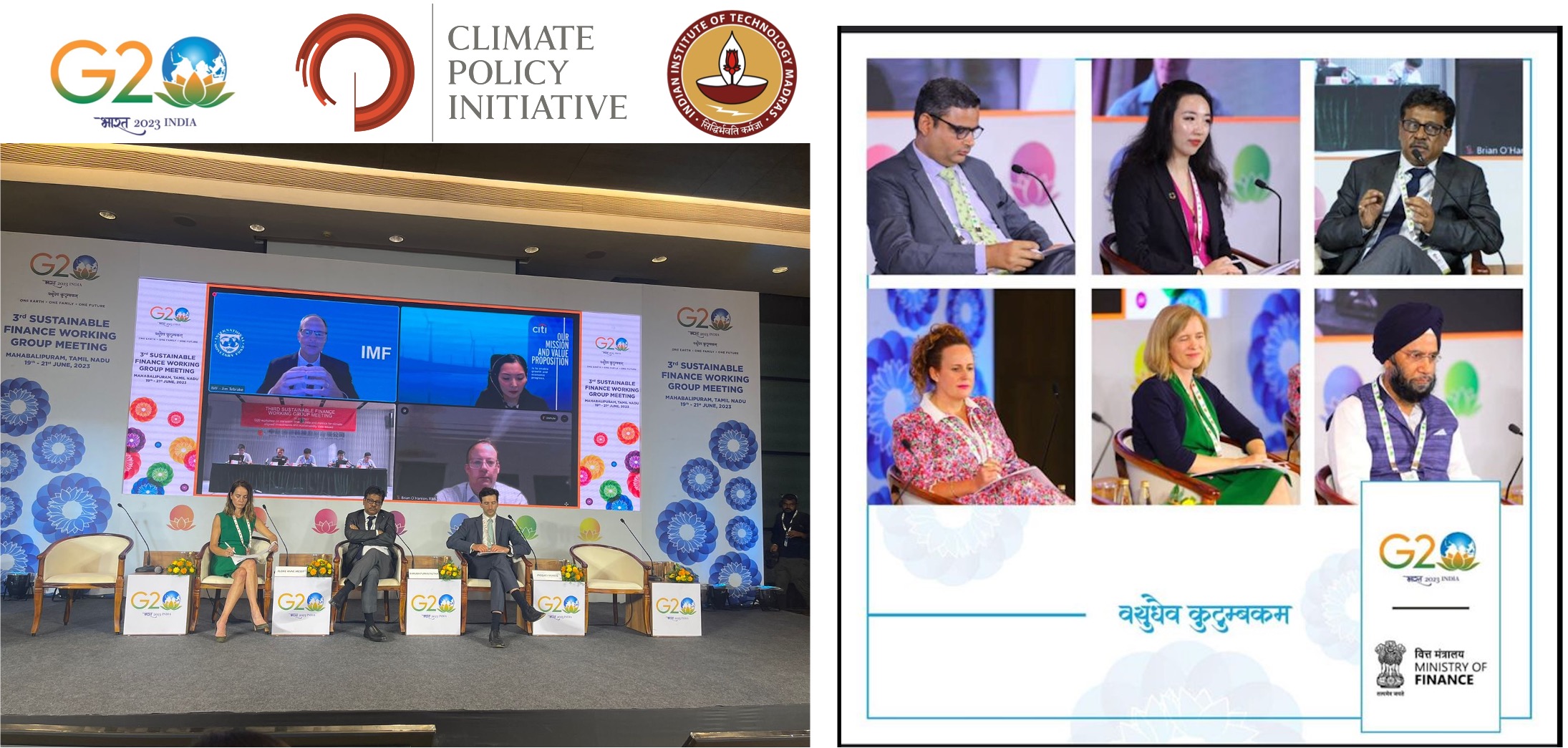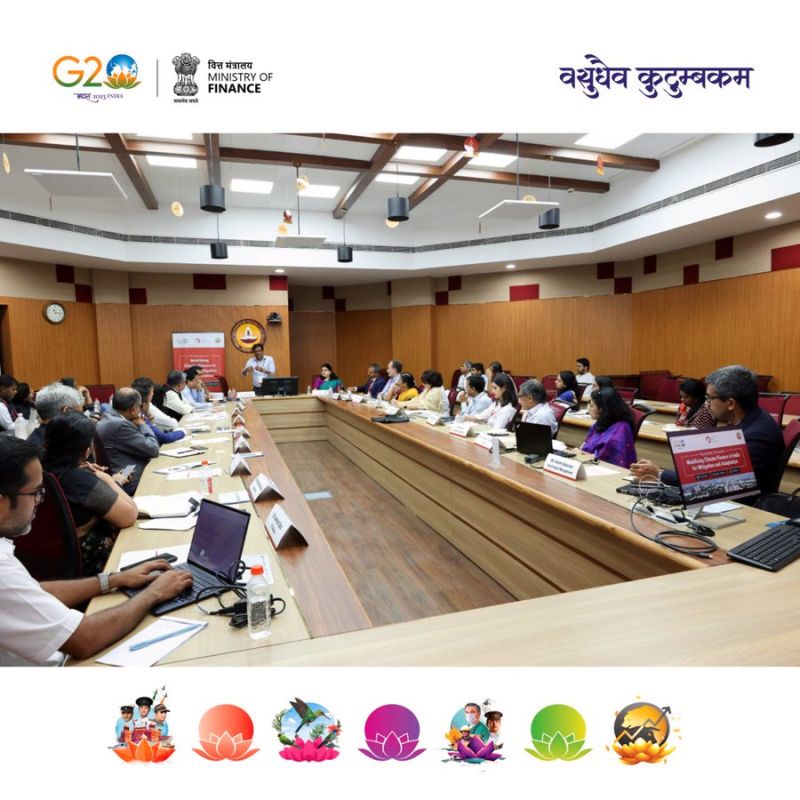G20 workshop on transition finance, data, and metrics for climate-aligned investments and sustainability data issues
CPI India Director, Dhruba Purkayastha participated in the third G20 India Sustainable Finance Working Group (SFWG) meeting in Mahabalipuram, Tamil Nadu. The event focused on leading discussions to finalize the recommendations for key deliverables in the SFWG 2023 work plan. The SFWG has been working on three priority areas to push forward the G20 Sustainable Finance Roadmap:
1. Mechanisms for mobilization of timely and adequate resources for climate finance;
2. Enabling finance for the Sustainable Development Goals;
3. Capacity building of the ecosystem for financing toward sustainable development.
Moderator: Ms. Flore-Anne Messy, Deputy Director of the OECD Directorate for Financial and Enterprise Affairs
Speakers:
- Jim Tebrake, Deputy Director, Statistics Department, IMF
- Dhruba Purkayastha, India Director, Climate Policy Initiative
- Jacques Morris, Team Leader, Transition Plan Taskforce Secretariat
- Yang Guanghao, deputy director of hydrogen metallurgy center of China Steel Research Technology Group (CISRI)
- Rapheal Erasmus, Sustainability and Corporate Transitions, Asia-Pacific, Citibank
- Brian O’Hanlon, Executive Director, Climate-Aligned Finance Program

G20 Side Event
CPI India Director, Dhruba Purkayastha, also moderated a G20 India side event that precedes the 3rd Sustainable Finance Working Group (SWFG) meeting. ‘Mobilising Climate Finance in India for Mitigation and Adaptation’ was organized jointly by CPI, India Department of Economic Affairs, India Ministry of Finance, and Indian Institute of Technology (IIT), Madras. The roundtable discussions included the role of policy and regulation in increasing climate finance and what the Banking, Financial Services, and Insurance industry could do to bridge the gap between required and actual climate investments for meeting India’s revised NDC goals.
Key takeaways included:
- The need to develop a formal green taxonomy for India
- Enhancement or redefinition of ‘Priority Sector Lending’
- Need for a state-owned, climate-focused Credit Enhancement Institution
- Expanding directed climate investments from Public Financial Institutions (SIDBI, NaBFID, IIFCL) and/or creating a dedicated Green DFI/Bank
- Development of additional loan/bond climate metrics, with a focus on emissions instead of overarching ESG
- Disclosures on financed emissions
- Incentives for green retail liability products, such as green deposits

We also prepared a whitepaper capturing the event discussion:

